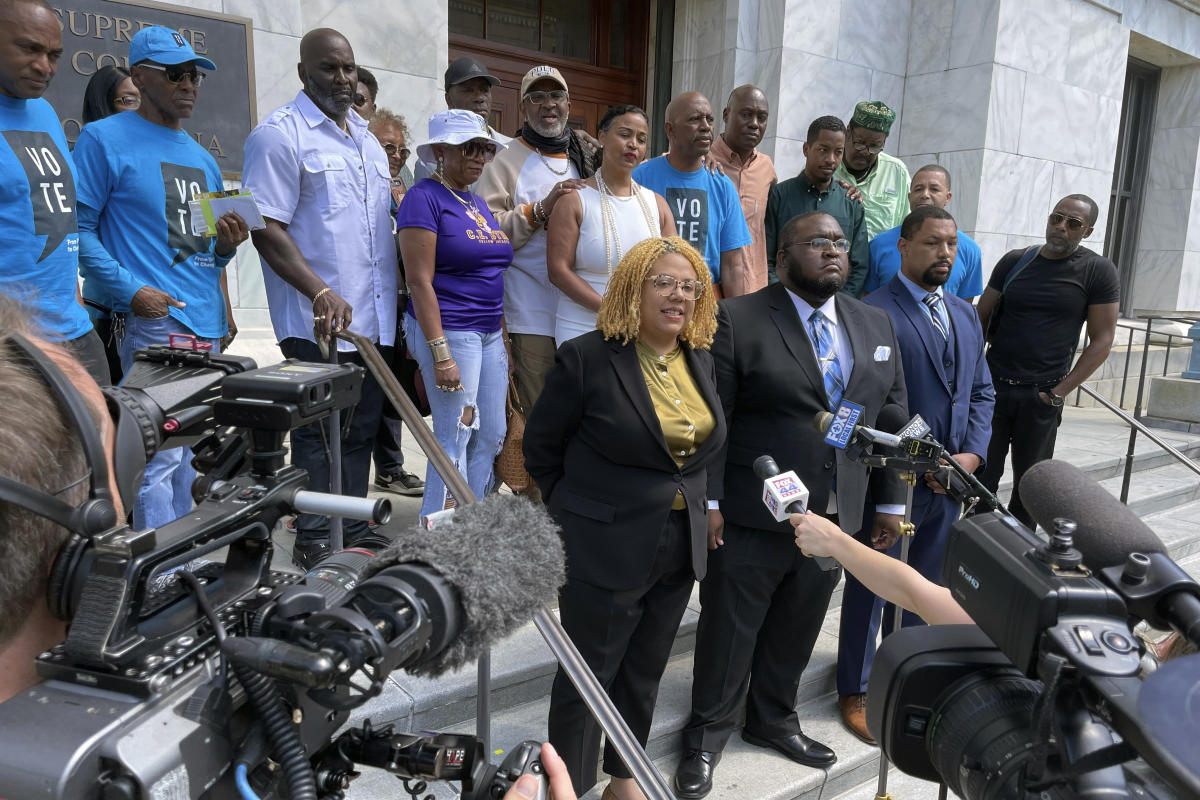Global Courant 2023-05-29 11:45:26
NEW ORLEANS (AP) — Evangelisto Ramos walked out of a New Orleans courthouse and away from a life sentence that came with a 10-2 jury verdict, thanks in large part to the historic U.S. Decision of the Supreme Court bear his name.
Ramos v. Louisiana barred non-unanimous jury verdicts as unconstitutional, with 6-3 majority judges recognizing the practice as a relic of racism from the era of “Jim Crow” laws enforcing racial segregation.
The 2020 ruling marked a new trial for Ramos, who was acquitted in March — this time by a unanimous jury — after defense attorneys pointed out weaknesses in the investigation leading to his prosecution.
“I knew my case was important because a lot of people would get their freedom back,” Ramos, a black immigrant from Honduras, told The Associated Press, answering questions by email about his time in prison and his pursuit of a new process.
But the prospects of freedom remain murky for hundreds of people convicted on 10-2 or 11-1 jury votes whose appeals were exhausted before the Ramos case was decided. The advocacy group Promise of Justice Initiative estimates that there are more than 1,500 such people incarcerated in Louisiana.
In Oregon, the only other state to allow non-unanimous verdicts for convictions before the Ramos case, the state Supreme Court new tests allowed. But the US Supreme Court and the Louisiana Supreme Court rejected arguments to retroactively apply the ruling.
Louisiana advocates have also turned to the legislature in recent years. But the latest possible remedy stalled in the House and appears dead after representatives voted 50-38 against the measure on Thursday. It is unlikely that supporters will be able to revive the bill with two weeks left in the legislature.
The proposal drew criticism from some prosecutors who did not want to revisit old cases, as well as advocates for people it targeted.
Instead of retroactively allowing new trials, the legislation would establish a committee with three retired state appellate or Supreme Court judges with the power to decide whether the verdict “resulted in a miscarriage of justice” and whether parole is warranted .
Story continues
Supporters of Rep. Randal Gaines, a Democrat from LaPlace, pitched it as a compromise. Prosecutors had argued that mandatory new trials would strain the justice system, renew the emotional pain for crime victims and their families, and burden prosecutors with years-old evidence and, in some cases, witnesses who have died or cannot be found.
Even the compromise failed to convince some prosecutors, according to Louisiana District Attorneys Association executive director Loren Lampert, who was officially neutral on the bill. Meanwhile, criminal justice advocates were unhappy with the lack of a path for exemption from the compromise measure.
“It must be a real relief — release from being found guilty,” said Hardell Ward, a Promise of Justice Initiative attorney whose client’s case led to a state Supreme Court ruling prohibiting older convictions exhausted on appeal of the ban on non-unanimous rulings.
Ramos was arrested in 2014 and tried on second-degree murder charges in the death of a woman found in a garbage can outside her home. All but two jurors found him guilty in 2016. Defense attorneys for the retrial noted that DNA from two people, neither Ramos, was found under the victim’s fingernails. No blood was found on the floor of Ramos’ apartment, where prosecutors claimed she was murdered.
“You cannot overstate the importance of what this ruling indicates about how very problematic these non-unanimous juries were,” said Sarah Chervinsky, one of Ramos’s retrial attorneys.
The non-unanimous jury policy was rooted in post-Civil War policies and intended to make it easier to convict black defendants, even with one or two black jurors.
In 2018, Louisiana voters banned non-unanimous verdicts for crimes committed after January 1, 2019. The vote followed a series of Pulitzer Prize-winning stories in The Advocate that analyzed the law’s racial origins and racial disparities in verdicts.
The 2020 Ramos decision affected pending cases, even for crimes committed before 2019. But progress stalled when the high courts refused to retroactively enforce the Ramos decision.
Some prosecutors have taken on the task of reviewing cases related to Jim Crow rulings.
Jason Williams established a civil rights division when he took over the New Orleans District Attorney’s office in 2021 on a reform platform. His office says more than 100 of an estimated 230 such cases have been reviewed. Cases against 10 wrongly convicted persons have been dropped and dozens of sentences or charges have been reduced.
It is not clear how many verdicts have turned out differently after Ramos. The Louisiana District Attorneys Association does not collect those statistics, Lampert said in an email.
New trials do not always lead to new verdicts. A jury in Jefferson Parish has unanimously convicted a man of first-degree murder whose non-unanimous 2018 conviction was overturned. Jefferson prosecutors achieved a similar result in a new trial last August.
But a new trial that requires a unanimous verdict could mean a more thorough look at a case with room for doubt, Chervinsky said.
“It’s not a technical problem, it’s not an insignificant difference, when the prosecutor has to convince all 12 people to unanimously agree on a verdict,” Chervinsky said. “That encourages more vigorous debate and discussion. It requires them to really consider every possible reasonable doubt in the case in a way that I think jurors can ignore if they’re allowed to ignore the voices of two people in that room.




